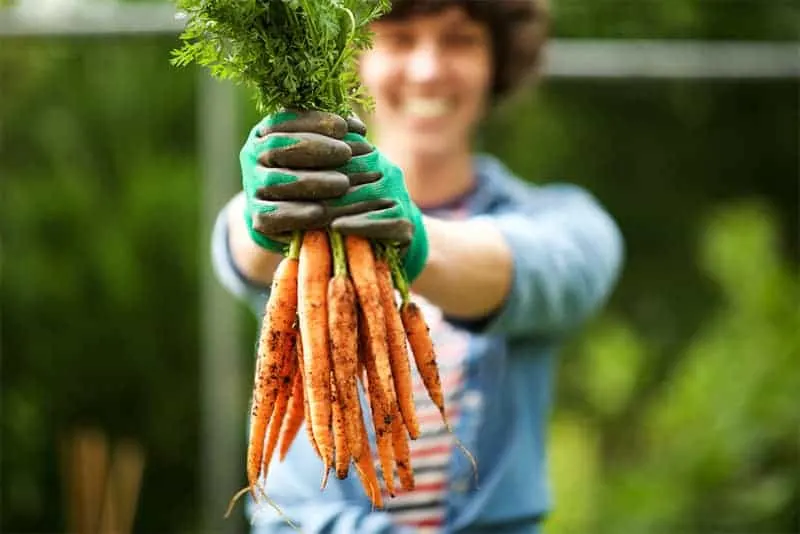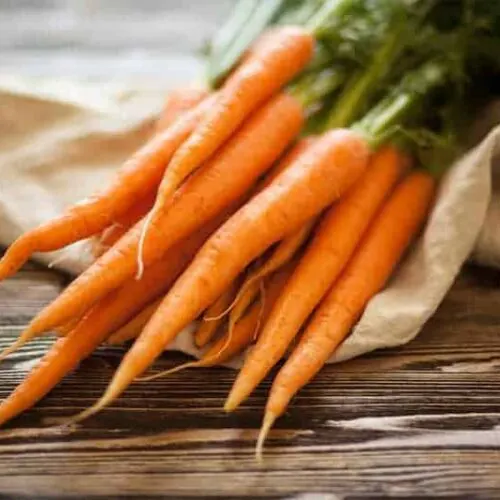What is the first thing that comes to mind when you hear the word “carrots”?
Usually, the answer to this question for most people would be; the actual vegetable itself, Vitamin A, a carrot dish that they love, or even Bugs Bunny!
Carrots are a type of root vegetable which is usually orange in colour and contains a high amount of Vitamin A.
Have you ever thought about how long a carrot can last? Do carrots go bad?
If you do have these kinds of questions, you have come to the right place to find the answer.
Eating spoilt carrots can make you catch a nasty case of food poisoning, the symptoms of which include vomiting and diarrhea.
Read on to find out more about the shelf life of carrots and how to identify if the carrots have gone bad.
Do Carrots Go Bad? How Long Do Carrots Last?

Compared to vegetables like asparagus, broccoli, and celery, which have shelf lives of only up to a week, carrots take the cake on the long-lasting list. Carrots are also comparatively lower in cost than these other vegetables.
Due to its long shelf life and low cost, we often think carrots do not go bad, but according to experts, fresh carrots, much like parsnips, can last for two months in the fridge.
Carrots are an excellent source of Vitamin A and contain a high amount of antioxidants that keep your skin healthy.
Baby carrots, on the other hand, have a shelf life of only two to three weeks if stored correctly in the fridge.
Baby carrots can last for twelve to eighteen months in the freezer. Baby carrots contain large amounts of antioxidants and beta carotene.
Meanwhile, the cooked carrots last for one to two weeks before it becomes unsafe to eat. Cooked carrots are a good source of beta carotene and fiber.
As we can see, fresh carrots have a relatively longer shelf life as compared to baby carrots and cooked carrots.
This phenomenon happens because whole carrots have a protective outer layer that is rich in nutrients and aids in prolonging the shelf life and preserving the vegetable.
Baby carrots indeed have a small amount of chlorine for antimicrobial purposes. However, this amount is negligible as long as you wash the baby carrots before consumption or preparation.
How to Tell If Carrots are Bad? Carrots Shelf Life!

Carrots may have an exceptionally long shelf life, but they do go bad after a certain period. Consumption of spoiled carrots, like any other spoiled food, can lead to food poisoning.
Healthline states signs like diarrhea, abdominal pain, vomiting, nausea, and fever as symptoms of food poisoning.
To avoid food poisoning by consuming spoiled carrots, we should know how to identify if a carrot has gone bad.
Signs which indicate that fresh carrots have gone bad
We can tell if carrots are going bad by the appearance of white dots on its surface. The presence of white dots is due to dehydration of the cut skin of the carrots. Carrots become mushy and slimy when completely stale and unsafe to eat.
Signs which indicate that baby carrots have gone bad
We can easily identify if baby carrots have gone bad by the unpleasant smell or moldy appearance. The main reason why baby carrots get spoiled is because of microorganisms, along with factors like air, moisture, light, and temperature.
Signs which indicate that cooked carrots have gone bad
The appearance of mold and dark spots means that cooked carrots have gone bad. The distinct pungent smell is also an obvious indicator of spoiled cooked carrots. Cooked food is more prone to getting unsafe for consumption because of the high moisture content, high temperature, and high acid content.
Conclusion
Carrots have a lot of benefits for our health and taste fantastic as well. They also have a long shelf life and are very affordable.
These facts are the reasons why we should add more carrots to our diet.
Now that we know the shelf lives of fresh carrots, baby carrots, and cooked carrots, we can prolong the shelf life of fresh carrots by cutting off the green tops.
Baby carrots can last longer when in a cold water bath or if kept in the freezer.
You should be aware of the food poisoning that comes along with eating bad carrots. We have given you the tips, and now, it is up to you to put the information to good use.

Do Carrots Go Bad? How Long Do Carrots Last?
Ingredients
- Carrots
- Air-tight containers or Ziplock bags
- Labels and markers
Instructions
- Read the guide thoroughly to learn how long it lasts.
- Label your container with the content and date and keep track of how much you’re using!
- Make sure to store in an airtight container in a cool, dark place (pantry or fridge).
- If frozen, thaw in the fridge before use. Always check for signs of spoilage before using.
